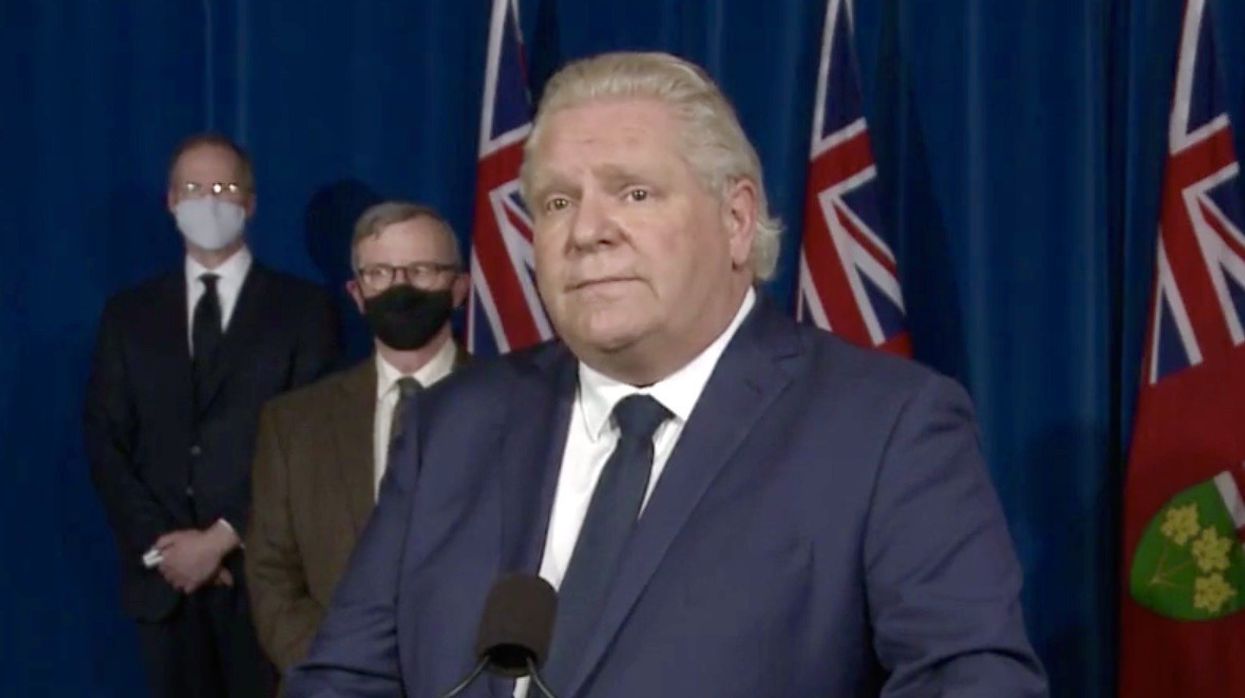Nothing can bring back the dead or undo the devastation caused by the pandemic, but there may yet be a silver lining to the dark cloud that is COVID-19. In Ontario, for example, the wholly inadequate and heavy-handed public health policies implemented by Ontario Premier Doug Ford’s Progressive Conservative government have unexpectedly led to greater expectations of urban life and a growing sense of civic empowerment.
Though Ford’s incompetence has created turmoil and, more recently, growing refusal to comply with his rules, it has also enhanced Ontarians’ -- especially Torontonians’ -- willingness to take ownership of their own behaviour.
No, we’re not talking about the stupidity of anti-masker demonstrations, we’re referring to the tsunami of civil disobedience that followed Ford’s announcement on Friday, April 16, that the steps he was imposing included closing public playgrounds and giving police emergency powers to stop and question people walking or driving on the street.
The next day, Saturday, the playgrounds of Ontario were filled with kids and parents having a great time breaking the law on see-saws, slides and jungle gyms. So furious was the backlash that Ford was forced to rescind the measure less than 24 hours after it was announced. Even the province’s advisors publicly supported parental scofflaws and their renegade children. “Outdoor activities are vital for mental and physical health,” tweeted Dr. Isaac Bogoch of Ontario’s COVID-19 Vaccine Distribution Task Force. “Science is clear: Outdoor COVID-19 transmission is extremely rare.”
READ: Ford Closing Down Non-Essential Construction Across Ontario
Golf courses, tennis courts, basketball courts and football fields remained closed, for no apparent reason other than to allow Ford to save face.
That retreat was soon followed by another when the premier withdrew the powers he had just given to Ontario cops. By then, most police services had already declared that this was not something they wanted. Dozens, from Thunder Bay and Toronto to Ottawa and Sault Ste. Marie, issued statements to make it clear they would not enforce Ford’s new regulation.
Ontarians responded similarly. Though the province was under a stay-at-home order, residents overwhelmingly rejected Ford’s argument that the pandemic justified his decision to turn Ontario into a virtual police state. Again, the outcry was loud and clear. The day after the announcement streets, parks and public spaces across the province were noticeably busier than usual. People were not trying to hide their feelings.
This was nothing new. Early one morning this week, a city worker dressed in the standard-issue orange clown suit did the rounds of Riverdale Park East putting up “Amenity closed by provincial order” signs on the two baseball diamonds and a calisthenics exercise station. Because few ball players are out at sunrise, the baseball notices were ignored. Exercisers, meanwhile, waited politely for the sign guy to leave before beginning their workouts.
Already the habit of strategically ignoring Ford’s silliness was ingrained; civic bureaucrats had riled locals when they recommended against closing Lake Shore Blvd. W. for this summer’s ActiveTO program. The popular initiative was started last year to give locked-down Torontonians a chance to cycle, skateboard and walk. But this time, city hall apparatchiks decided there was too much construction to shut down Lake Shore to traffic even on weekends. The city erupted in anger: columnists spilled ink, Twitter lit up and councillors were inundated with complaints. The pencil-pushers were ordered to reconsider.
The message was clear; Torontonians like their newly accessible city. They have grown very attached to CafeTO, probably the most visible part of the city’s response to COVID-19. The program allows cafes and restaurants to set up operations on sidewalks and road lanes previously restricted to cars and trucks. Last year, main streets such as King, Queen, Danforth and Yonge were transformed almost magically from places that tolerated human presence into linear plazas that encouraged and welcomed it.
In New York similar COVID-inspired programs for temporary street closures and outdoor restaurants are so successful they were made permanent in September, 2020. “I want us to really take this model and make it part of the life of New York City for years and generations to come,” NYC Mayor Bill de Blasio said at the time. “We already have well over 10,000 restaurants participating, almost 100,000 jobs have been saved. And I think, I hope, this is going to make it easier for restaurants to survive.”
Toronto isn’t New York, of course, but that doesn’t mean we can’t learn from the Big Apple. The main lesson is that civic success can only be achieved by paying attention to residents and their needs. This will require a degree of boldness Toronto has historically lacked.
But Torontonians have made their feelings clear -- and they will no longer be ignored.





















